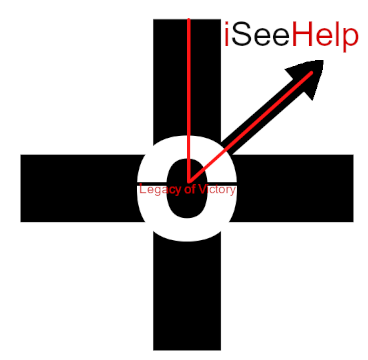How to Be Happier

Thank-full living strangles stress
Positive psychology studies over decades reveal secrets to happiness across cultures. Rather than focusing on the negatives, Martin Seligman challenged the American Psychological Association to start researching why people are happy. Challenged by this observation, thousands of researchers published studies that identify patterns. Longitudinal studies verified outcomes.
Not surprisingly, those patterns are the same indicators that are found in the Bible. In other words, unintended objectives of secular scientists proved that the Bible is valid and reliable, the hallmarks that are benchmarks across time and space.
PERMA™ Theory of Well-Being and PERMA™ Workshops
Traditionally, a major focus of psychology has been to relieve human suffering. Since World War II, great strides have been made in the understanding and treatment of mental health disorders. Relieving suffering, however, is not the same as flourishing. People want to thrive, not just survive.
The skills that build flourishing are different from the skills that alleviate suffering. Removing the disabling conditions is not the same as building the enabling conditions that make life most worth living. (The words “flourishing” and “well-being” are used interchangeably. We do not use the word “happiness” because it means different things to different people.)
Suffering and well-being are both part of the human condition and psychology should care about each. Human strengths, excellence, and flourishing are just as authentic as human distress. People want to cultivate the best version of themselves and live a meaningful life. They want to grow their capacities for love and compassion, creativity and curiosity, work and resilience, and integrity and wisdom.
When Dr. Seligman was president of the American Psychological Association in 1998, one of his presidential initiatives was the building of a field called Positive Psychology. Positive Psychology is the scientific study of the factors that enable individuals and communities to flourish.
PERMA™ Theory of Well-Being
What is human flourishing and what enables it? Dr. Seligman’s PERMA™ theory of well-being is an attempt to answer these fundamental questions. There are five building blocks that enable flourishing –
Positive Emotion,
Engagement,
Relationships,
Meaning, and
Accomplishment
(hence PERMA™) – and there are strategies to increase each.
There are many different routes to a flourishing life. People will derive well-being from each of these five building blocks to varying degrees. A good life for one person is not necessarily a good life for another. Positive Psychology is descriptive, not prescriptive. In other words, we are not telling people what choices to make or what to value, but research on the factors that enable flourishing can help people make more informed choices to live a more fulfilling life that is aligned with their values and interests.
Nothing replaces happiness like worry. That anxiety is the the thief of joy. Proverbs 12:25 indicates that worry and anxiety create health issues, relationship issues, emotional issues, mental issues, and more dysfunction in the world. In the Bible there are over 300 places about being grateful. What we dwell on, think on, focus on tends to affect our behavior.
Live Oaks Church How to Battle Worry and Make a Thank-Full List
Why change your brain and lifestyle?
Dr. Henry Cloud has written books, with neary 20 millions sold worldwide. He is a Christian clinical psychologist and author of many videos about boundaries. Become who God created you to be! You deserve to live life as God designed it.
Gratitude not only is it the opposite of envy. Envy comes from arrogance or has within it arrogance and pride and a sense of entitlement. That's why envy is so intertwined with narcissistic personality disorders and a lot of times borderline personality disorders because there is a sense, especially in narcissism, "I'm entitled to this." Think about that word entitled like the title, the ownership of it, belongs to me.
"I hold title to this even when I don't have it, even when I didn't do anything to get it. I'm entitled to your respect. I'm entitled to have this, or I'm entitled to this or I'm entitled to that.
And then when we don't get what we're entitled to, what's the result? We get angry. Entitled people want to be treated special like they deserve to be treated special more special than everybody else."
We can improve our mental, emotional lives. Our immunology increases. Cardiac care is elevated. Physiologically, we benefit when we are thankful. Thank-full living results in beneficial outcomes. An attitude of gratitude is worth cultivating as a lifestyle. Research and the Bible prove that is true.
Instead of buying the lie that repels the truth of real life, resist the natural default tendency of the world, the news, and stop the negativity of complaining.
It's an inside job.

